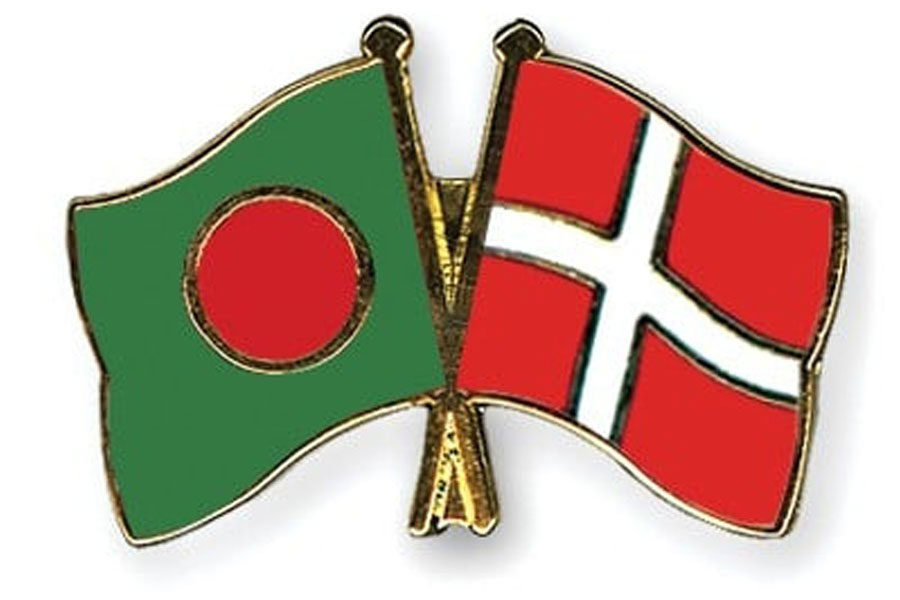
Published :
Updated :

Denmark has expressed a strong willingness to invest more in Bangladesh, especially in key areas such as ready-made garments (RMG), port development, water resource management, the blue economy, and green technology.
Stating that Denmark has been one of the primary partners of Bangladesh for many years, Danish foreign ministry's Director General for Asia, Oceania, Latin America, and the Caribbean Ambassador Thomas Lund-Sorensen said that the partnership is now transitioning from aid to business, with Denmark investing and trading more with Bangladesh.
He was talking to journalists after the foreign office consultation between the two countries in the city on Monday.
Mr Thomas, who led the Danish side, said Bangladesh has a very large trade surplus with Denmark due to the fact that many Danish companies are active in the RMG sector, as well as in other sectors.
"Right now we are looking at continued investments into critical infrastructure sector such as water, energy transition, green transition, and into maritime infrastructure, like ports," he added.
Asked about the extension of duty free facilities for Bangladesh after the LDC graduation, he said, the negotiations with the EU on a partnership agreement and GSP plus are very important, both for the EU and for Bangladesh, and we will, as part of the EU, of course, contribute to those negotiations.
"We hope, certainly that they will come to positive conclusions. There is some urgency to this, but we still have some time to discuss and agree on the various items within those areas," he added.
Earlier, during the 3rd round of political consultations between Bangladesh and Denmark, both sides reaffirmed the enduring and friendly relations between both countries, grounded in mutual respect, shared values, and common aspirations.
They reviewed progress made since the second round of consultations in May 2023 and explored new avenues for deeper future engagement.
The two delegations held productive and wide-ranging discussions on political cooperation, trade and investment, development cooperation, climate change, green and just transition, maritime affairs, renewable energy, education, technology, people-to-people contacts, and regional and global issues of mutual interest, said a spokesman of the foreign ministry.
Denmark reiterated its continued commitment to supporting the interim government in its transition towards a peaceful, democratic, and equitable Bangladesh.
The Danish side also commended the interim government's role in advancing the climate action agenda and emphasised continued cooperation under the bilateral Green Strategic Partnership Framework, he added.
In the meeting, Bangladesh expressed its appreciation for Denmark's longstanding development cooperation, particularly in the areas of good governance, agriculture, climate change, and the maritime sector.
Both sides agreed to explore opportunities for expanded collaboration in areas such as water resource management, the blue economy, and green technology.
The two sides reaffirmed their commitment to strengthening bilateral trade and investment, including through initiatives aimed at facilitating market access and promoting sustainable economic growth.
Both the countries agreed to establish a Joint Trade and Investment Committee to unlock trade potential and accelerate investments. Bangladesh also sought Denmark's support for its bid to benefit from the EU's GSP+ facility beyond 2029.
Both sides agreed to continue cooperation in education and cultural exchange, including academic collaboration, scholarships, and cultural programmes, in order to foster mutual understanding and strengthen people-to-people ties.
Denmark reaffirmed its continued humanitarian support for the forcibly displaced Rohingyas and the host communities in Bangladesh.
The Danish side also reiterated its commitment to finding a durable solution to the crisis, including through the dignified, safe, voluntary, and sustainable repatriation of Rohingyas to Myanmar.
In response to a request from the government of Bangladesh, Denmark announced an additional allocation of US$ 5 million to support Bangladesh's democratic transition at the conclusion of the consultations, officials of the foreign ministry said.
The Danish side also expressed its intention to developing a new strategic sectoral cooperation in the area of circular economy, with a particular focus on the ready-made garments (RMG) sector.
The consultations were co-chaired by Mr. Md. Abul Hasan Mridha, director general (West Europe & EU) of the Ministry of Foreign Affairs of Bangladesh, and Ambassador Thomas Lund-Sorensen, director general for Asia, Oceania, Latin America, and the Caribbean of the Ministry of Foreign Affairs of Denmark. Mr. A.K.M. Shahidul Karim, ambassador of Bangladesh to Denmark, and Mr. Christian Brix Møller, ambassador of Denmark to Bangladesh, also participated as part of their respective delegations.
mirmostafiz@yahoo.com


 For all latest news, follow The Financial Express Google News channel.
For all latest news, follow The Financial Express Google News channel.